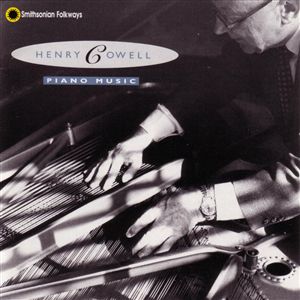Musique concrète is a type of music composition that utilizes recorded sounds as raw material. Sounds are often modified through the application of audio signal processing and tape music techniques, and may be assembled into a form of sound collage. It can feature sounds derived from recordings of musical instruments, the human voice, and the natural environment as well as those created using sound synthesis and computer-based digital signal processing. Compositions in this idiom are not restricted to the normal musical rules of melody, harmony, rhythm, and metre. The technique exploits acousmatic sound, such that sound identities can often be intentionally obscured or appear unconnected to their source cause.
Daniel Bernstein is a composer for video games and movies. Born in Leningrad in the Soviet Union, he received a B.S. in computer science and an M.A. in music composition from the University of Virginia. Bernstein started in games in 1996 "working in development and sound design". He has also worked as a composer for Monolith Productions where he collaborated with Guy Whitmore on titles such as Blood and Claw. Outside of video games, he also wrote the soundtrack for short movies.
Sound design is the art and practice of creating soundtracks for a variety of needs. It involves specifying, acquiring or creating auditory elements using audio production techniques and tools. It is employed in a variety of disciplines including filmmaking, television production, video game development, theatre, sound recording and reproduction, live performance, sound art, post-production, radio, new media and musical instrument development. Sound design commonly involves performing and editing of previously composed or recorded audio, such as sound effects and dialogue for the purposes of the medium, but it can also involve creating sounds from scratch through synthesizers. A sound designer is one who practices sound design.
iMUSE is an interactive music system used in a number of LucasArts video games. The idea behind iMUSE is to synchronize music with the visual action in a video game so that the audio continuously matches the on-screen events and transitions from one musical theme to another are done seamlessly. iMUSE was developed in the early 1990s by composers Michael Land and Peter McConnell while working at LucasArts. The iMUSE system was patented by LucasArts in 1994, after being added to the fifth version of the SCUMM game engine in 1991.
Bariolage is a musical technique used with bowed string instruments that involves rapidly playing alternated notes on adjacent strings, one of which is generally left open, thereby exploiting the different timbres of each string. Bariolage may involve quick alternation between a static note and changing notes that form a melody either above or below the static note. The static note is usually an open string note, which creates a highly resonant sound. In bluegrass fiddling the technique is known as "cross-fingering".
An arpeggio is a type of broken chord in which the notes that compose a chord are individually sounded in a progressive rising or descending order. Arpeggios on keyboard instruments may be called rolled chords.
Tsuyoshi Sekito is a Japanese video game composer, arranger, and musician who has been employed at Square Enix since 1995. As a composer, he is best known for scoring Brave Fencer Musashi (1998), Final Fantasy VII: Advent Children (2005) and The Last Remnant (2008). He also plays the guitar in the rock bands The Black Mages and The Star Onions; both groups arrange and perform compositions from the Final Fantasy series.

Shivers is a single-player horror-themed PC adventure game, released on CD-ROM by Sierra On-Line in November 1995. It was developed with Sierra's Creative Interpreter. Being the first Sierra first-person adventure game, Shivers was compared to contemporary Myst and The 7th Guest, gaining praise mostly for its atmosphere. The game takes place in a fictitious haunted museum.

String piano is a term coined by American composer-theorist Henry Cowell (1897–1965) to collectively describe pianistic extended techniques in which sound is produced by direct manipulation of the strings, instead of or in addition to striking the piano's keys. Pioneered by Cowell in the 1920s, such techniques are now often called upon in the works of avant-garde classical music composers.

Richard Thomas Chizmar is an American writer, the publisher and editor of Cemetery Dance magazine, and the owner of Cemetery Dance Publications. He also edits anthologies, produces films, writes screenplays, and teaches writing.

Shivers II: Harvest of Souls is a horror-themed point-and-click PC adventure game, released in 1997 by Sierra On-Line. It is the sequel to Shivers.

An experimental musical instrument is a musical instrument that modifies or extends an existing instrument or class of instruments, or defines or creates a new class of instrument. Some are created through simple modifications, such as cracked cymbals or metal objects inserted between piano strings in a prepared piano. Some experimental instruments are created from household items like a homemade mute for brass instruments such as bathtub plugs. Other experimental instruments are created from electronic spare parts, or by mixing acoustic instruments with electric components.

3D computer graphics, sometimes called CGI, 3-D-CGI or three-dimensional computer graphics, are graphics that use a three-dimensional representation of geometric data that is stored in the computer for the purposes of performing calculations and rendering digital images, usually 2D images but sometimes 3D images. The resulting images may be stored for viewing later or displayed in real time.
In video games, adaptive music is background music whose volume, rhythm or tune changes in response to specific events in the game.
A variety of computer graphic techniques have been used to display video game content throughout the history of video games. The predominance of individual techniques have evolved over time, primarily due to hardware advances and restrictions such as the processing power of central or graphics processing units.
GameSoundCon is a conference and seminar on video game music and video game sound design. GameSoundCon began as a multi-city conference providing seminars occurring 2-4 times per year in various cities in the US on creating music and sound effects for videogames. Speakers and panelists from throughout the industry cover topics ranging from composing game music to game sound design and the business of game sound.

The Piss Shivers are an American old school punk rock band formed in 1994. The band, which is based out of the Philadelphia suburbs, are also occasionally referred to as the "Pee Shivers" when played on the radio. Starting in the winter of 1993 singer/guitarist Cedric Crouch began making demo tapes with a multi track recorder and a drum machine. Realizing the limitations this created for live shows, a flesh and blood line up in the form of Dion Blade (bass) and Robert Alper (drums) soon followed. Crouch, who is the primary songwriter, has been the only constant in the group. The rest of the band, primarily bassists and drummers have been a revolving line up based on their availability to record and tour. The band has extensively played shows and toured on the east coast and released numerous recordings such as the CDs Help, My Dog's A Skinhead!, Hepped Up On Goofballs and We're Cheap Dates, and has also appeared on many compilations put out by labels from the U.S., Ireland and Japan.

DIPS (Digital Image Processing with Sound) is a set of plug-in objects that handle real-time digital image processing in Max/MSP programming environment. Combining with the built-in objects of the environment, DIPS enables to program the interaction between audio and visual events with ease, and supports the realization of interactive multimedia art as well as interactive computer music.

A cutscene or event scene is a sequence in a video game that is not interactive, interrupting the gameplay. Such scenes are used to show conversations between characters, set the mood, reward the player, introduce newer models and gameplay elements, show the effects of a player's actions, create emotional connections, improve pacing or foreshadow future events.

"Brooklyn Bridge to Chorus" is a song by American rock band The Strokes. The song was released on April 6, 2020, as the third single from their sixth studio album, The New Abnormal (2020). The song was featured as part of the soundtrack to the sports video game MLB The Show 21.









